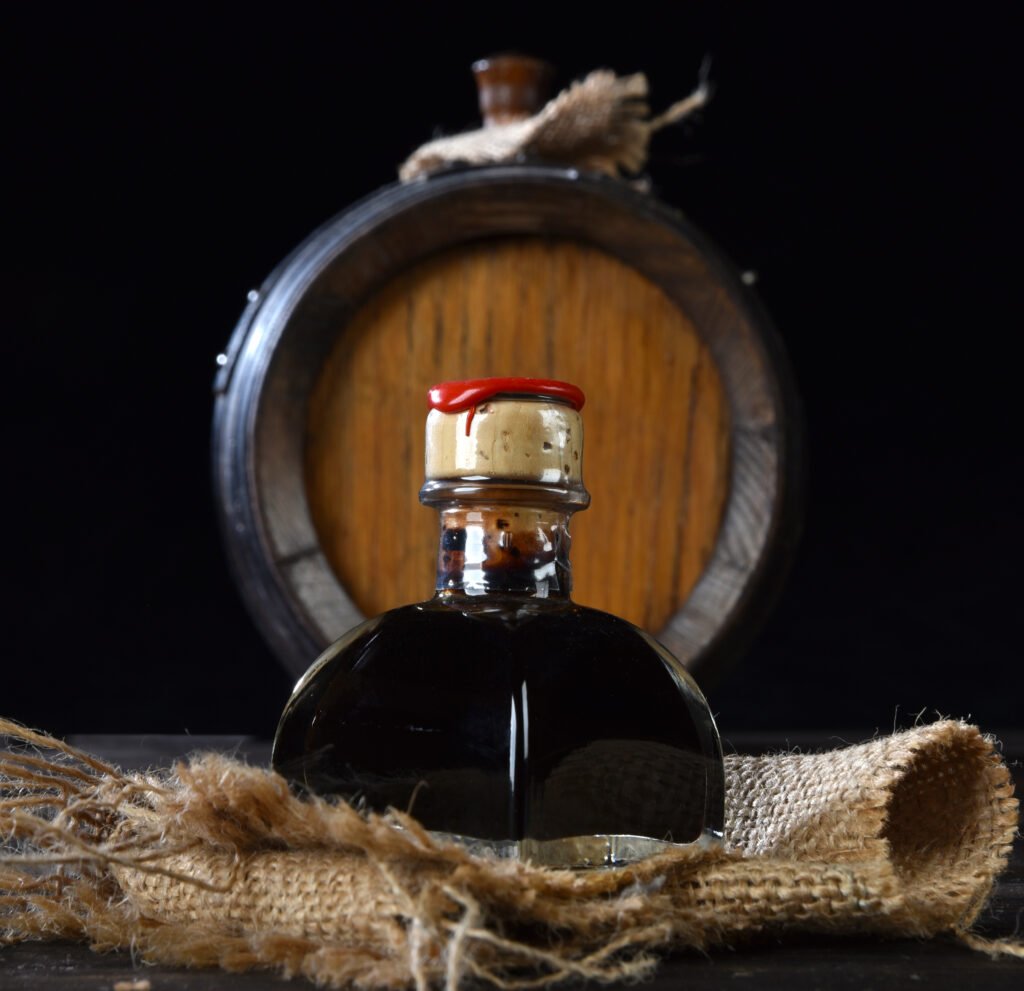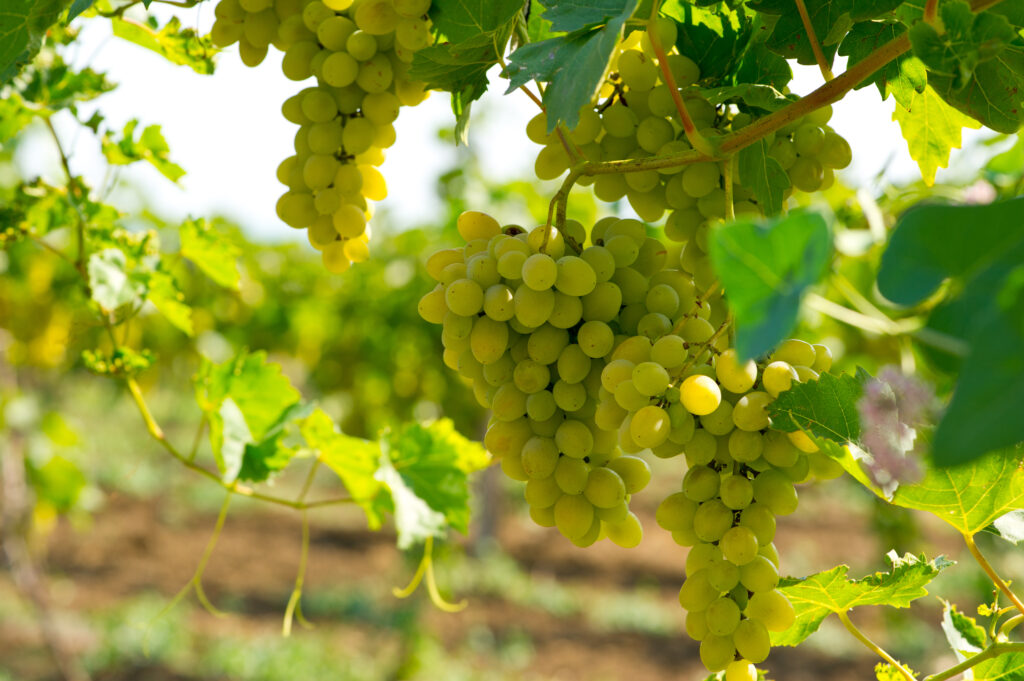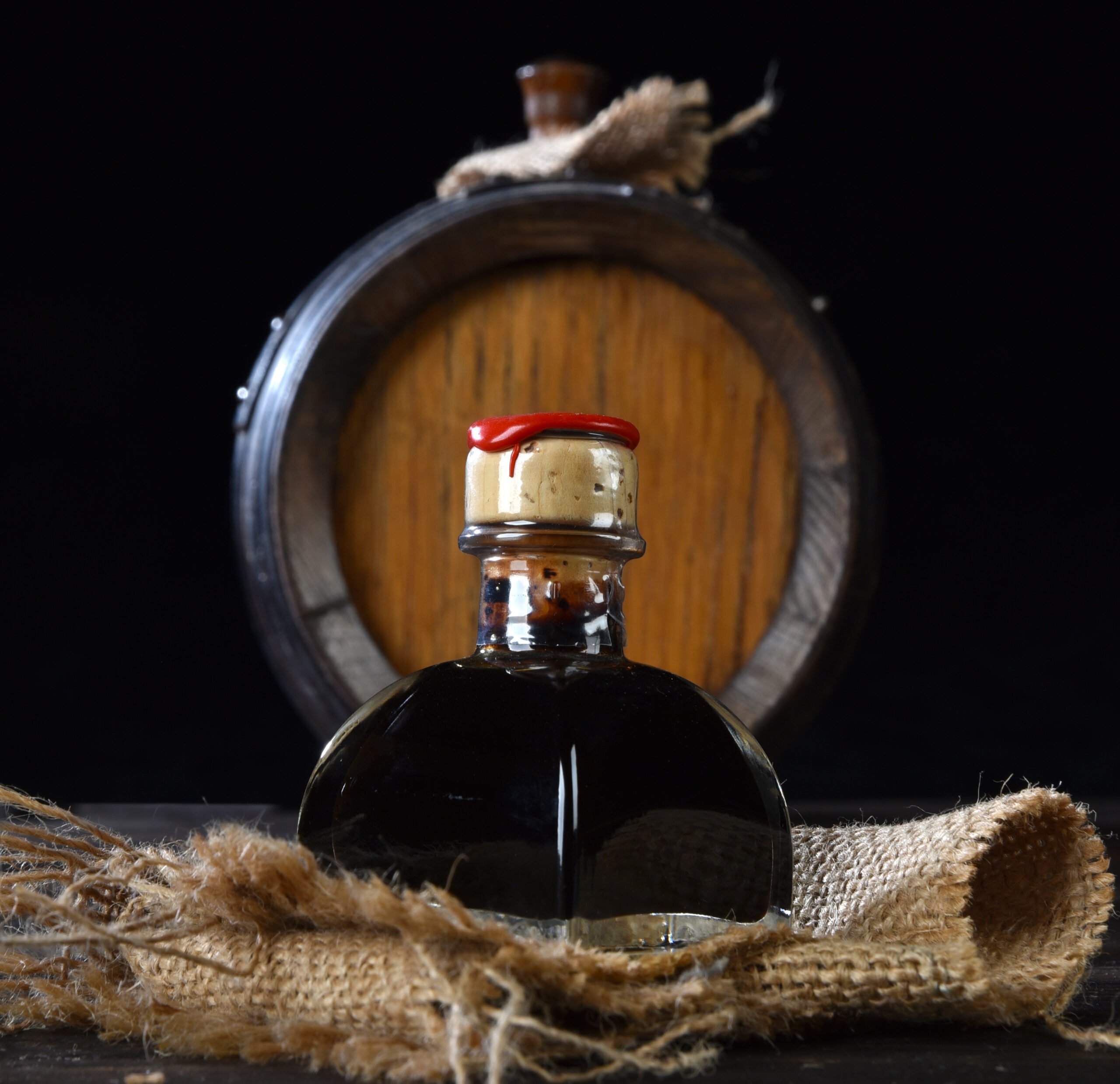Originally published July 2020
Not all balsamic vinegars are authentic. Some are downright unhealthy. But the real stuff is incredible and also good for you. This whole topic can be confusing so I created a primer to answer the question “how is balsamic vinegar made?” and to help you understand the difference between real and fake balsamic vinegar.

Authentic traditional balsamic
Real balsamic contains just one ingredient – grapes. Whole grapes are crushed into juice and cooked into a reduction called “grape must.” Then it goes through a process of being aged in successively smaller wooden barrels for 12 to 100 years. This is all done under the supervision by a Consortium in Modena or a Consortium in Reggio Emilia, Italy.
This syrupy sweet reduction is labelled Aceto Balsamico Tradizionale di Modena DOP or Aceto Balsamico Tradizionale di Reggio Emilia DOP.
Authentic balsamic vinegar is very expensive – the longer it’s aged, the more it costs. If you can find an affordable source, I recommend having it on hand to be used sparingly; it’s delightful.
Just a little bit goes a long way. My Quinoa Stuffed Tomatoes recipe goes from delicious to divine with just a drizzle.
Benefits of balsamic vinegar
Not only is balsamic vinegar delicious, in a clinical trial it has been shown to contain health benefits including:
- reduces triglycerides and cholesterol
- contains abundant antioxidants in the form of polyphenols
- inhibits LDL oxidation and LDL-induced foam cell formation (implicated in atherosclerosis )

Acceptable balsamic vinegar
Aceto Balsamico di Modena IGP contains wine vinegar in addition to grape must. It may also contain caramel coloring, so read the label. The grapes do not have to be grown in Italy; however, the balsamic must be produced within the provinces of Modena or Reggio Emilia, and is monitored by an inspection body. When labeled IGP, it doesn’t go through a lengthy aging process like balsamic vinegar labeled DOP; the regulations only require that it be aged in wooden barrels for at least 6 months. If it is aged for 3 years or longer, the word “aged” can be included on the label. Aceto Balsamico di Modena IGP definitely doesn’t taste as wonderful as the authentic traditional DOP, but it can still be quite nice depending on the quality of the grape must and wine vinegar used.
Fake balsamic vinegar
The court ruled in 2019 that balsamic vinegar is a generic term commonly used to designate a sweet-and-sour vinegar taste, and that vinegar can be labelled “Balsamic Vinegar of Modeno” (Aceto Balsamico di Modena) even if it isn’t produced in Italy. This inferior balsamic isn’t regulated by a consortium.
This balsamic imposter may contain ingredients such as grape juice, wine vinegar, rice vinegar, caramel coloring, brown sugar, guar gum, and corn flour. Don’t be misled by this label; it designates a commercial, imitation product.
TRADITIONAL AUTHENTIC | ACCEPTABLE | COMMERCIAL | |
LABELED | Aceto Balsamico Tradizionale di Reggio Emilia DOP or Aceto Balsamico Tradizionale di Modena DOP | Aceto Balsamico di Modena IGP (PGI) | Aceto Balsamico di Modena |
INGREDIENTS | Grapes | Grapes and wine vinegar (may contain caramel so read label) | May contain ingredients such as grape juice, wine vinegar, rice vinegar, caramel coloring, brown sugar, guar gum, and corn flour |
SOURCE OF GRAPES | The Italian provinces of Modena or Reggio Emilia | Grapes do not need to be grown in Italy but the vinegar must be produced within the province of Modena or Reggio Emilia Italy | Not Regulated |
GRAPE VARIETIES | Lambrusco, Sangiovese, Trebbiano, Albana, Ancellotta, Fortana and Montuni | Lambrusco, Sangiovese, Trebbiano, Albana, Ancellotta, Fortana and Montuni | Not Regulated |
AGING PROCESS | Must be aged in wooden barrels between 12 to 100 years | Must be aged in wooden barrels for at least 60 days | N/A |
ITALIAN PRODUCTION SUPERVISION | By a consortium in Modena or Reggio Emilia, Italy | By a consortium in Modena or Reggio Emilia, Italy | N/A |
Organic versus conventionally grown grapes
Conventionally grown grapes are sprayed with A LOT of pesticides, even in Italy, so look for organic balsamic vinegar if possible.
If you enjoyed this post, you may also like Cooking Oils – the Best and the Worst.

